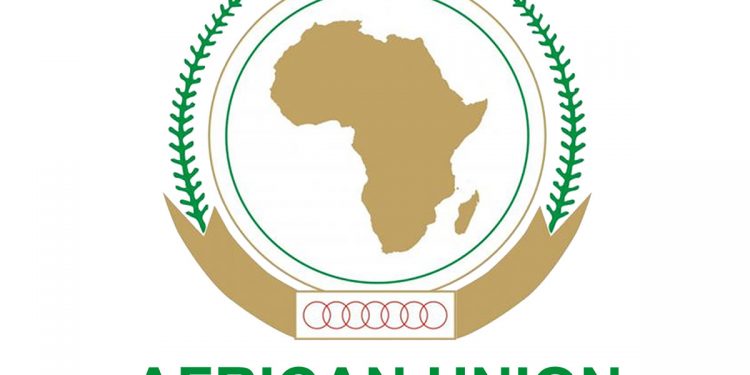JOHANNESBURG – Threats to African journalists are nothing new, but the African Union is launching a website to track and monitor threats against them, in a bid to improve protections for media workers and support the right to freedom of the expression.
Six African journalists were killed in 2020, according to the International Federation of Journalists. Countless more were threatened, arrested, harassed, and censored, according to several media freedom and human rights groups.
That, the African Union is now saying, has to stop. And to do that, they’re making use of journalists’ most powerful tool: facts.
A new AU website, www.safetyofjournalistsinafrica.africa, launched Friday, and will now track threats to African journalists.
“We stand on the shoulders of these giants, these heroes of the of the media in Africa in whose name we today launched this platform that is designed to help end the harassment, detention, and even murder of journalists, just for doing their work,” siad Jovial Rantao, chairman of the African Editors Forum, invoking the memories of fallen colleagues. “In some of our beloved continent, freedom of the media, freedom of expression, access to information, is a matter of life or death.”
Rantao and his colleagues readily admit that journalists are often the irritating characters who lurk in the halls of power to shout tough questions at important people.
They are also figures like Zimbabwean investigative journalist Hopewell Chin’ono, who was recently granted bail after three weeks in prison. He was charged with “communicating falsehoods,” after he tweeted that police had beaten an infant to death while enforcing COVID-19 lockdown regulations.
As South African President Cyril Ramaphosa argues, you don’t have to like journalists or their work to support this initiative.
“It requires that we rigorously defend the right of journalists to do their work, to write, to publish, and to also broadcast what they like, even if we disagree with some or all of it,” Ramaphosa said. “Africa is on the march to entrench a culture of human rights, of democracy, gender equality, inclusion, peace, prosperity, security for all our citizens, and unfettered media freedom and independence. The digital platform for the safety of journalists in Africa is an important tool in promoting the safety of journalists and other media workers across Africa.”
But, media freedom advocates were quick to point out, that doesn’t mean journalists are without responsibilities. At the virtual launch of the website, media freedom advocates spoke of Felicien Kabuga, founder of Rwanda’s infamous Radio Télévision Libre des Mille Collines. That’s the broadcaster whose reporters actively encouraged Rwandans to participate in the 1994 genocide that killed more than 800,000 people.
Kabuga’s use of the platform to spew hatred and incite violence has led him to prison, in the Hague.
The head of the AU African Governance Architecture Secretariat, Salah Hammad, says the AU draws a direct line between honest journalism and robust, peaceful societies.
“So when we are talking about the rights of people, the rights of human and people’s rights in Africa, we cannot really exclude media freedom as well as a right to expression and right to freedom of expression as well as a right to information,” he said. “And the African Union, in its constitutive act, clearly indicated that the African Union, in totality, is very supportive of course of the promotion and protection of these rights.”
The platform will help keep a focus on continuing violations, like the January 19 shooting death of an Ethiopian broadcaster in the conflict-wracked Tigray region. The independent Ethiopian Human Rights Council says that the journalist, Dawit Kebede Araya, and a friend were killed execution-style by security forces.
By Anita Powell, VOA NEWS







